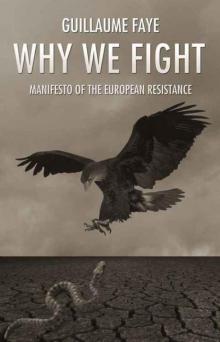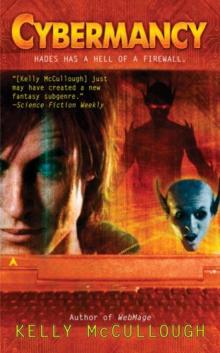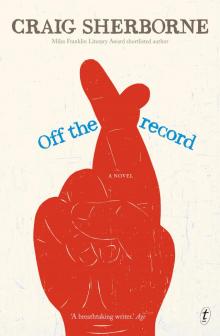Identitarians and others making up the European resistance lack a doctrine that truly serves as a political and ideological synthesis of who they are - a doctrine that speaks above parties and sects, above rival sensibilities and wounded feelings, that brings the resistance together around clear ideas and objectives, uniting them in opposition to the Europeans' dramatic decline.
Our people today face the gravest peril in their entire history: demographic collapse, submission to an alien colonisation and to Islam, the bastardisation of the European Union, prostration before American hegemony, the forgetting of our cultural roots, and so on. In the form of an introductory text and a dictionary of 177 key words, Guillaume Faye, one of the most creative writers of the European 'Right', makes a diagnosis of the present situation and proposes a program of resistance, reconquest, and regeneration. He holds out the prospect of a racial and revolutionary alternative to the present decayed civilisation.
The manifesto's principal objective is thus to unify the resistance by developing a common doctrine that unites everyone and every tendency seeking to constitute a European network of resistance - a doctrine that goes beyond the old sectarian quarrels and superficial divisions. All relevant subjects, including politics, economics, geopolitics, demographics, and biology are broached. As it was for the Nineteenth-century Left with Marx's Communist Manifesto, Why We Fight is destined to become the key work for Twenty-first century identitarians. This edition of Why We Fight contains the complete text of the original French edition, as well as additional material that was added for the German edition. Also included is an original Foreword by translator Michael O'Meara, author of New Culture, New Right, as well as a Foreword by Dr. Pierre Krebs, Chairman of the Thule-Seminar in Germany.
With a doctorate in political science from Paris' Institute of Political Science, the essayist Guillaume Faye was one of the principal theoreticians of the French Nouvelle Droite in the 1970s and '80s prior to his growing sympathy for the identitarian movement. He has also been a journalist at Figaro-Magazine, Paris-Match, Magazine-Hebdo, Valeurs Actuelles, and a radio commentator. For several years he was the editor of J'ai tout compris (I Understood Everything), a private newsletter.
Our people today face the gravest peril in their entire history: demographic collapse, submission to an alien colonisation and to Islam, the bastardisation of the European Union, prostration before American hegemony, the forgetting of our cultural roots, and so on. In the form of an introductory text and a dictionary of 177 key words, Guillaume Faye, one of the most creative writers of the European 'Right', makes a diagnosis of the present situation and proposes a program of resistance, reconquest, and regeneration. He holds out the prospect of a racial and revolutionary alternative to the present decayed civilisation.
The manifesto's principal objective is thus to unify the resistance by developing a common doctrine that unites everyone and every tendency seeking to constitute a European network of resistance - a doctrine that goes beyond the old sectarian quarrels and superficial divisions. All relevant subjects, including politics, economics, geopolitics, demographics, and biology are broached. As it was for the Nineteenth-century Left with Marx's Communist Manifesto, Why We Fight is destined to become the key work for Twenty-first century identitarians. This edition of Why We Fight contains the complete text of the original French edition, as well as additional material that was added for the German edition. Also included is an original Foreword by translator Michael O'Meara, author of New Culture, New Right, as well as a Foreword by Dr. Pierre Krebs, Chairman of the Thule-Seminar in Germany.
With a doctorate in political science from Paris' Institute of Political Science, the essayist Guillaume Faye was one of the principal theoreticians of the French Nouvelle Droite in the 1970s and '80s prior to his growing sympathy for the identitarian movement. He has also been a journalist at Figaro-Magazine, Paris-Match, Magazine-Hebdo, Valeurs Actuelles, and a radio commentator. For several years he was the editor of J'ai tout compris (I Understood Everything), a private newsletter.

 Whiskey Holiday
Whiskey Holiday_preview.jpg) Beheaded (Vampin Book Series #8)
Beheaded (Vampin Book Series #8) Money Man (Woolf Tales Book 3)
Money Man (Woolf Tales Book 3) Suddenly Broken: Book 5 in the Dirty Texas Series
Suddenly Broken: Book 5 in the Dirty Texas Series Cybermancy
Cybermancy The Case of the Lost Opera Singer
The Case of the Lost Opera Singer Off the Record
Off the Record Avenger
Avenger